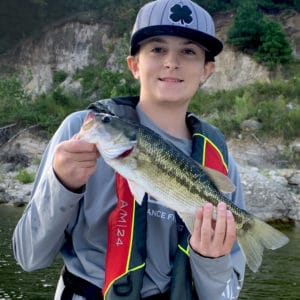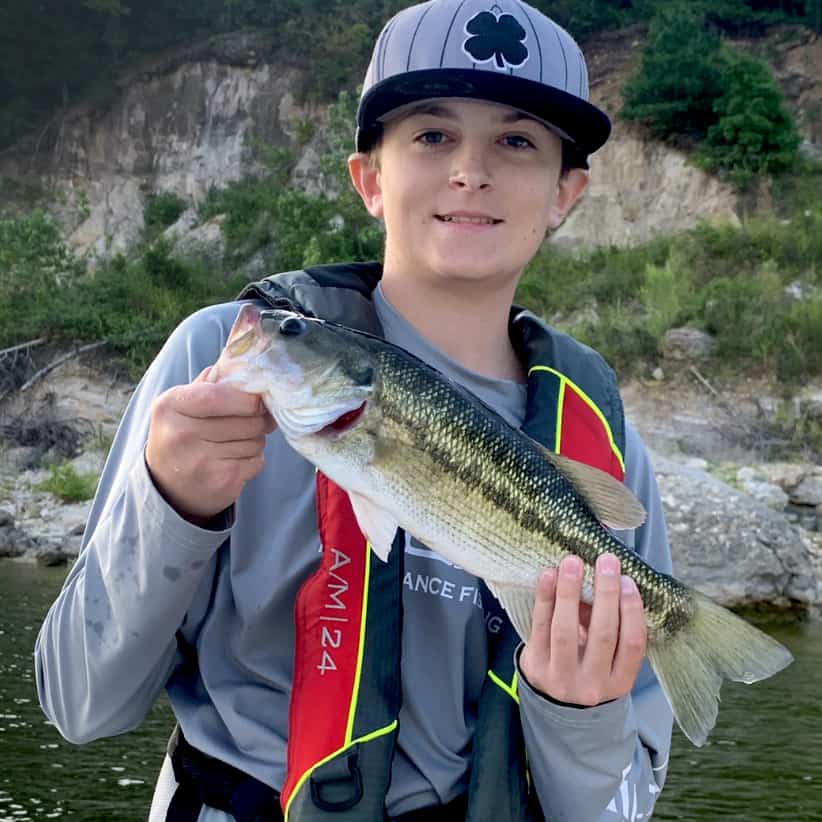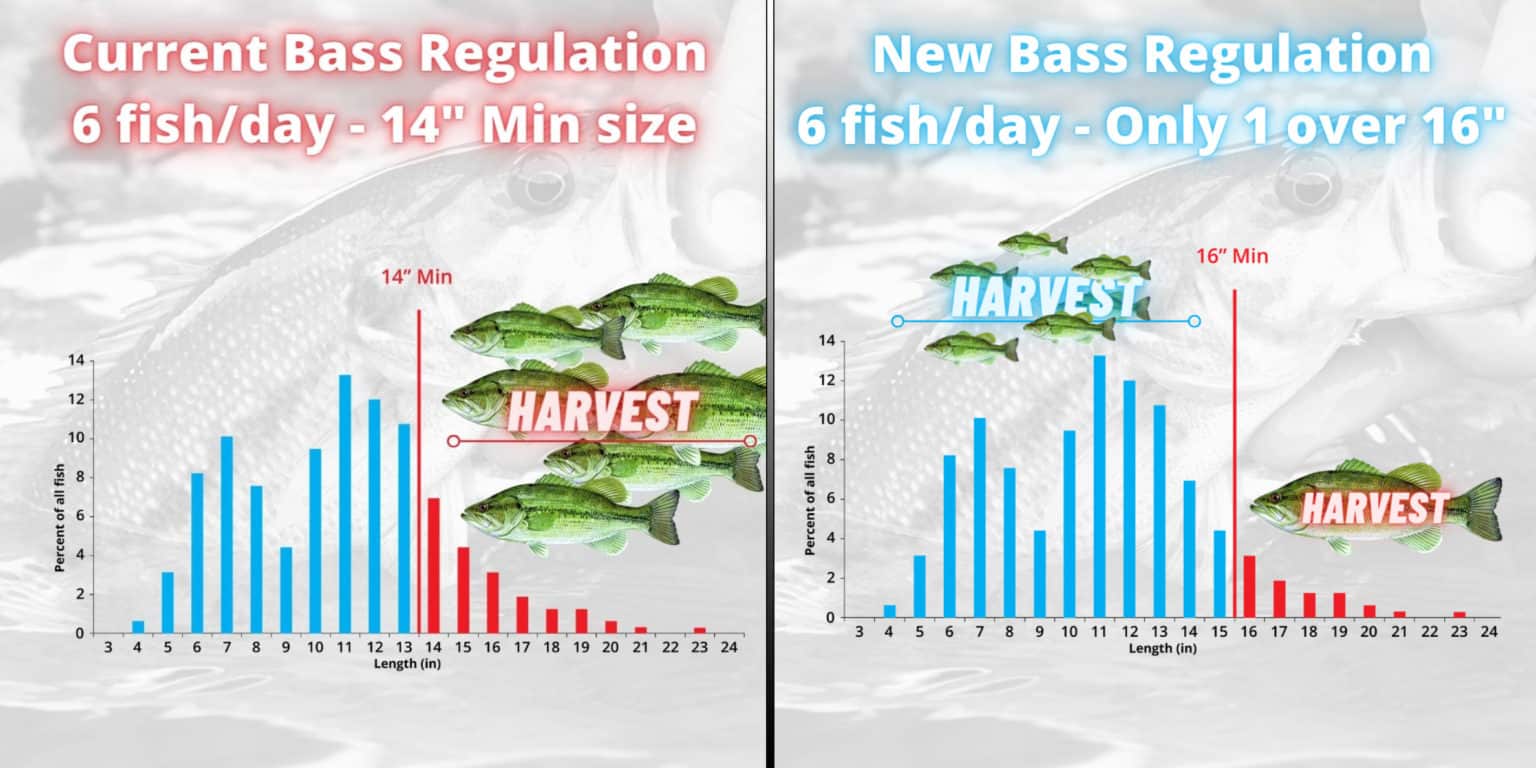State biologists want anglers to keep little ones, let bigger ones goBy KELLY BOSTIAN For the CCOF Oklahoma Department of Wildlife Conservation biologists say catch-and-keep, not catch-and-release, will help the state’s most popular game fish. A new bass fishing proposal announced Tuesday, ahead of the annual slate of other proposed rules, makes a drastic change. In fact it essentially reverses current rules that protect smaller bass. On most of the state’s waters anglers can keep six largemouth bass a day but all must be at least 14 inches long. The new rule would keep the daily six-bass limit, but reverse the size restriction. So anglers could keep smaller bass but only keep one that is 16 inches or longer. The rule addresses “black bass,” which includes largemouth, smallmouth and Kentucky spotted bass. An exemption for bass tournaments would require directors to apply for a free permit. That would allow competitors to keep more large bass during an event. The fish would have to be released immediately after weigh-in and directors would have to file a report on the tournament catch results within 30 days. Other exemptions include rivers where rules protect native smallmouth bass, such as the Blue River or the Upper Illinois River. Municipal lakes and Close-To-Home program waters will still have their own rules. Lake Texoma also will be exempted so the rules there remain consistent with the Texas regulation with a 14-inch minimum. “It’s a pretty drastic change, something we know people will want to talk about so we wanted to get it out there before the full list of proposals,” said Cliff Sager, Senior Fisheries Biologist with the Wildlife Department. A public comment period for proposed regulations opens the first week of December through Jan. 7, 2022 on the Wildlife Department website and via written comments. The Oklahoma Conservation Commission will decide on the rule in early 2022 and if approved it will go to the Oklahoma Legislature’s Rules committee and finally the governor as part of a regulations package. If approved at every step, it would take effect in September of 2022. A fishing culture change Finding a black bass regulation that made sense for statewide application was years in the making, and it tackles several issues, Sager said. With too many small bass, fish compete for limited resources so fewer fish can grow to trophy size, he said. The new rule also makes it easier for who want to keep the typically smaller Kentucky spotted bass. And the new tournament requirement resurrects a reporting system that helps the state track the health of bass populations. The first challenge is convincing anglers to keep bass, Sager said. Public surveys show only about 17 percent of anglers say they will keep all or nearly all fish they catch. So, the catch-and-release mantra for bass is a conservation idea that has almost gone too far. Some bass anglers even view the idea of eating a bass as bad luck, or a taboo. Rather than catch-and-release every bass, the idea is to keep more of the smaller ones. The larger fish can grow even larger and be the ones for others to enjoy for catch-and-release, he said. A 12-inch bass weighs roughly a pound. Fish up to 15 and 16 inches would be 1.5 to 2 pounds. That’s a good size to make fillets for the dinner table, he said. “We have kind of correlated this to what was done with deer harvests and the ‘hunters in the know take a doe’ idea,” Sager said. “It used to be that hunters wouldn’t take a doe because that just wasn’t done and their father or grandfather taught them that way. It took a long time to change that culture. We kind of see this the same way with catch-and-release for every bass. It will take some time for that mindset change and the pendulum to swing back the other way.” Using survey data from 100 lakes, biologists found that on average 82 percent are shorter than 16 inches, he said. “In a lot of lakes 70 percent or more of the bass in that lake were not legal to keep, some lakes it’s 80 or almost 90 percent. So this regulation will open that up for more people who want to take home some 12 and 13-inch fish, but also protect some of the larger quality fish,” he said. Spotted bass and tournament helpKentucky spotted bass already are free of a length limit. It is a prolific and aggressive species in many lakes, and biologists have long encouraged people to keep them. But spotted bass look very similar to largemouth bass and that makes anglers uneasy about keeping them, Sager said. “Most spotted bass that people catch are under 16 inches so this will remove that worry. So, If they don’t have to worry about the ID maybe people will keep more of them,” he said. The department plans to create an easy portal with the Go Outdoors app for tournament directors, Sager said. Reporting tournament catch numbers and weights has been voluntary for tournament directors and used to be more robust. In recent years various social media options have diluted the reports. Making reports to a central location mandatory will allow the department to produce an annual report, he said. That would provide important information about fishing for future tournaments, for the public and for biologists, he said. “We get a lot of information when we do electro-fishing surveys but we can also get a lot from catch statistics,” Sager said. “The reports will definitely be a benefit for the public looking for places to fish and for our agency when we look at management of lakes or future management. Perhaps in the future, too, we’ll see if there is an increase in the average size of fish being caught.” CommentThe public comments for this proposed regulation and others open the first week of December. For full information see the on the Wildlife Department’s website at www.wildlifedepartment.com/public-meeting.
Kelly Bostian is an independent journalist writing for The Conservation Coalition of Oklahoma Foundation, a 501c3 non-profit dedicated to education and outreach on conservation issues facing Oklahomans. To learn more about what we do and to support Kelly’s work, see the About the CCOF page.
0 Comments
Leave a Reply. |
Archives
May 2024
Categories
All
|
Conservation Coalition of Oklahoma
P.O. Box 2751
Oklahoma City, OK 73101
[email protected]




